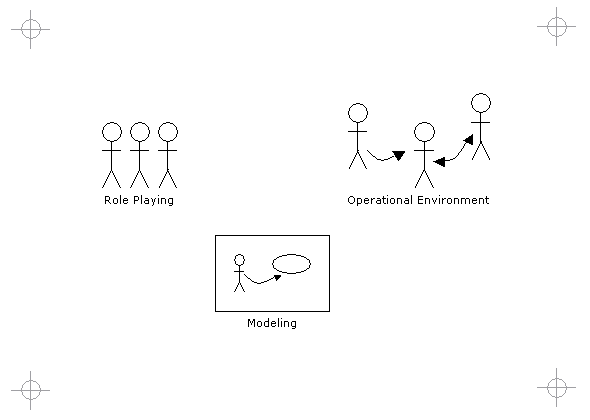|
Diagram
|
|
|

|
|
Title
|
|
|
Role Play
|
|
Building Architecture
|
|
|
Theatre was taught at the Bauhaus. Students in other disciplines participated in this collaboration. It involved not only the performing art but also was an opportunity to apply construction in creating stage props, stage scenes and costumes.
|
|
Architecture Intensive Disciplines
|
|
|
The use of role playing has been applied with the use of class-role-collaboration (CRC) cards. Role play helps to "prototype" the operational environment and is a form of "modeling" systems and processes. It also provides a setting for understanding process and collaboration - giving teams a learning experience as well as enhancing the team dynamics. "Actor roles" are also artifacts in Jacobsen's "Use Case" techniques where persons or things interacting with a system are portrayed as "Actors" or "Actor Roles". We also refer to "staging" as providing an environment that emulates or copies that of "live" or production environment. In many ways the concept of a theatre or stage has been applied in systems and software development.
|
|
Case Study A: Large Corporate IT
|
|
|

|
|
|
Use case workshops were held with the team as part of an in-house UML skills training exercise. A specific workshop was scheduled to attempt role play as an analysis and design method but unfortunately not followed through.
|
|
Case Study B: Small Commercial Team
|
|
|

|
|
|
Role play was not used.
|
|
|